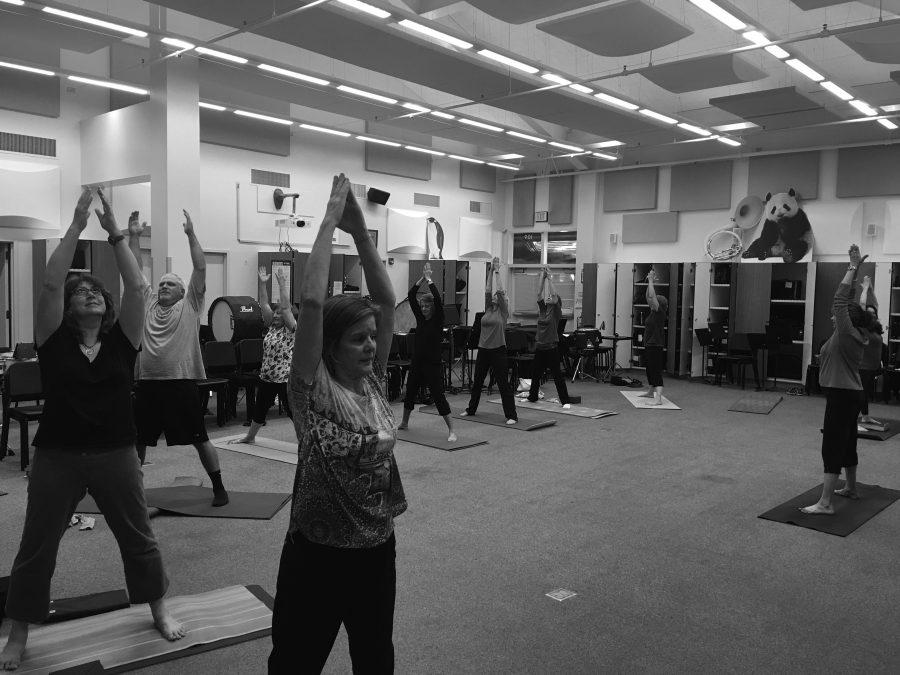To most students, the idea of voluntarily choosing to go to extra schooling after finally completing years of arduous education seems like a baffling decision. Yet, around 8,000 adults annually register in the Palo Alto Adult School (PAAS) to attend class at usually teenager dominated campuses.
Founded with a focus on citizenship and English as a Second Language (ESL) courses in 1921, PAAS has since expanded to offer world languages, health and fitness, music, parent education and career training.
Classes are located throughout Palo Alto Unified School District, including Jane Lathrop Stanford Middle School, Barron Park Elementary School, Cubberley Community Center, Escondido Village and Wesley Methodist Church.
According to PAAS French instructor Hunter Reardon, a Paly teacher and former adult student himself, student demographics range from college age to elderly residents.
“I get all types of reasons why people take classes,” Reardon said. “Sometimes it’s work related, or [students are] retired and they want to do something or they’re going on vacation.”
Bridgit Conrad, who is taking a watercolor class, said she is in it for the enjoyment.
“I like just being able to concentrate on something different than what I normally concentrate on.
Bridgit Conrad
Others students say they take PAAS classes for vocation or lifestyle reasons.
One of the largest number of PAAS classes are for ESL, where nonnative adults improve communication skills for more vocational opportunities.
“Learning English would really help me get a better job to get a better life,” ESL student Douglas Alves de Oliveira said.
PAAS is particularly appealing because of its low fees, since it is a nonprofit organization.
“We don’t make money, that’s not our aim,” principal secretary Malou Cruz said. “Teachers get okay pay, but they’re really here because they love helping.”
The Adult Education Block Grant funds vocational classes, including citizenship and ESL, eliminating fees. Most classes are located in school district buildings which helps with saving expenses for facilities and decreasing student cost.
“They have a nice variety of courses, and the prices are very reasonable, especially compared to other adult schools in the area, so it makes sense why a lot of people would come.”
Bridgit Conrad
The lack of grading in more academic classes also serves as another attractive aspect, as it alleviates stress and allows students to focus on their growth as a learner.
“The really nice thing about adult school is that the entire endeavour is about student learning, and there isn’t grades intervening and getting in the way of actual learning happening,” Reardon said.
In order to provide additional encouragement for adult learning, PAAS has been working with other districts in the North Santa Clara County Student Transition Consortium, an association representing Palo Alto, Los Altos, Mountain View, Sunnyvale and portions of San Jose and other communites in the area.
Together, they are coordinating programs and developing plans on a regional basis to better support the adult educational needs.
As a result, PAAS has added a writing academy and Transition Advisor, who aids students with their academic goals.
Language student Don Mclaughlin said, “Learning is the most fun thing you can do. Why stop learning after you finish college?

